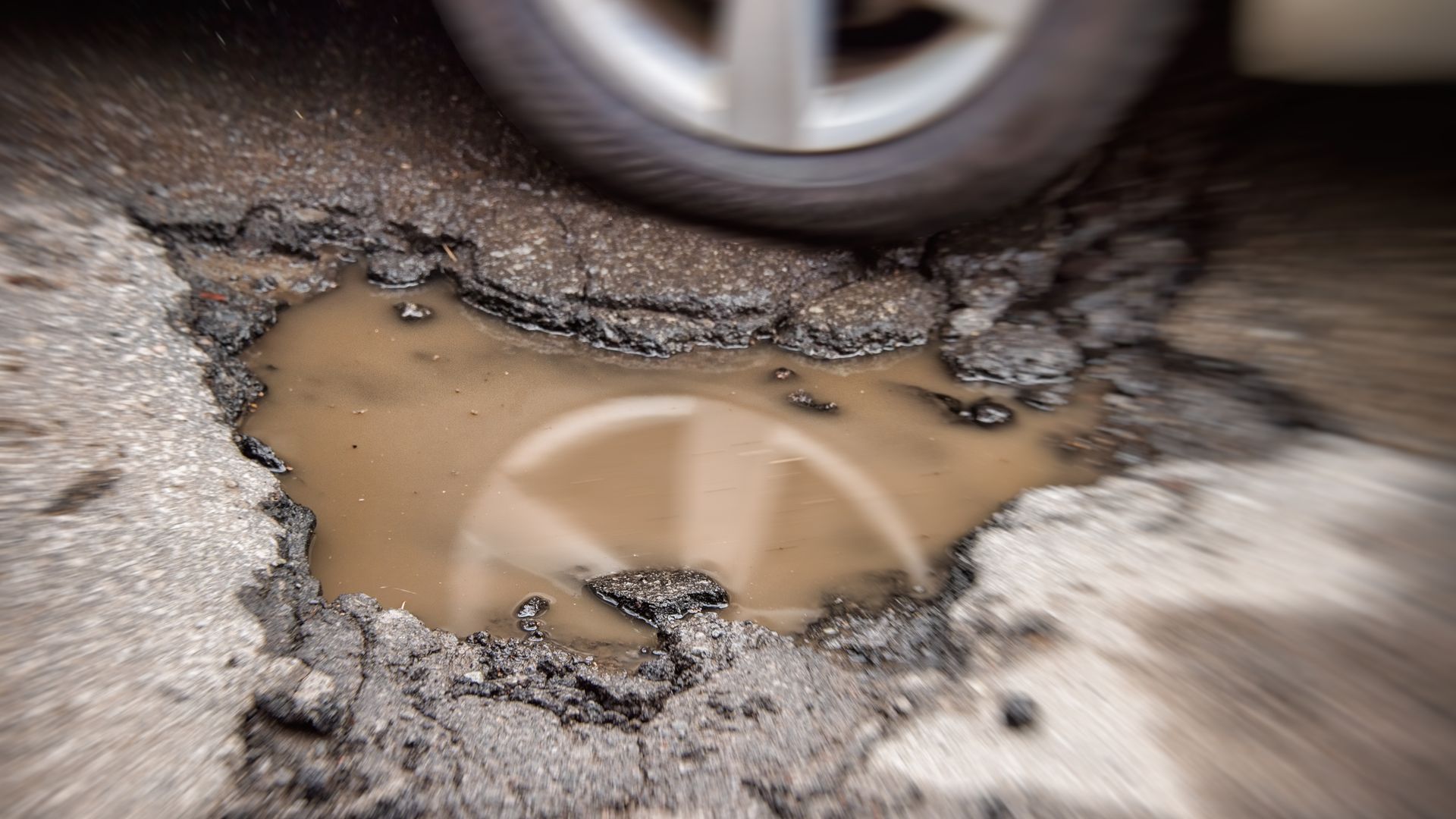Whether you drive a car or ride a bike, you'll know that potholes on the UK road network are a massive problem. The AA, which handled 631,852 pothole-related incidents in 2023, estimates that damage to vehicles from poor road surfaces hit £474 million last year.
The RAC also reported a record number of vehicle breakdowns caused by Britain’s pothole-ridden roads last year. What's more, some 96% of drivers rated potholes as the most important transport issue in a recent AA poll.
Another survey for Kwik Fit found that 70% of drivers have hit at least one pothole a week over the past year, with 25% saying they hit one every single day.
Potholes, which are a large hole in a road surface that results from gradual damage caused by traffic and extremes of weather, could be more damaging than you think.
Five of the most common types of damage caused by potholes
- Blowouts, punctures and other tyre damage
- Damage to the wheels and suspension
- Steering system issues
- Damage to a car's underfloor
- Problems with the exhaust system
However, it's not just the damage to your vehicle that potholes inflict. In more serious cases, you could lose control of your car, resulting in an accident which may cause more serious damage and injuries.
Tips for steering clear of pothole damage
- Keep your tyres at the right pressure because over or under inflated tyres will make pothole damage more likely
- Keep scanning the road ahead so that you can spot potholes early and take action to avoid them altogether
- If you know a particular route is full of potholes, try to avoid it until the potholes are fixed
- Never assume a puddle in the road is just a puddle - it could conceal a deep pothole
- Don’t be tempted to suddenly swerve in order to avoid a pothole - it could put you and other road users in danger
- When you see a pothole, try to gently reduce your speed because the quicker you hit a pothole, the more likely your vehicle will sustain damage
- Try to avoid braking when driving over a pothole because it can put unnecessary pressure on your car’s suspension
- Keep a safe distance away from the car ahead so that you have full visibility of the road surface ahead
- Hold the steering wheel in your hands firmly at all times so there's less risk of it being knocked out of your hands if you hit a large pothole
- Keep your speed in check because the faster you hit a pothole, the higher the risk that it will damage your car
- Smaller cars have smaller wheels, so they are more likely to be damaged by potholes, while larger vehicles (such as SUVs) have bigger wheels and tend to be more robustly built
- If you think your car may have been damaged by a pothole, wait until you can stop in a safe place before getting out to inspecting your vehicle
How to make a claim for pothole damage
If your car is damaged by a pothole, it may be possible to claim compensation. Here are five tips:
Collect evidence
Make a note of where the pothole is located, the time and date of the incident, and take a photo of the pothole. Include an object such as a shoe or drinks bottle to give a sense of scale. Then, if possible, take your car to a garage and ask for a mechanic's report in writing, plus a quote to fix the damage.
To make a claim for compensation, you need to know who is responsible. If the pothole is on a motorway or A road in England, the chances are it is a National Highways problem. For local roads, use this postcode checker to find out which council is responsible. For other parts of the UK, use the following links to report potholes:
- Wales: Traffic Wales
- Scotland: MyGov.Scot
- Northern Ireland: NI Direct
Use the links above to pursue a claim. However, it's worth remembering that the success of a claim will often depend on whether the pothole has already been reported. Even if the authority or agency was unaware of the pothole because it wasn't reported, you still have a chance to make a successful claim because you may be able to prove the road wasn't maintained properly.
Outcome of claim
If you're successful, you can still reject the value of the offer if you believe it is insufficient. If your claim is rejected, you can appeal. This is likely to be a more complicated process because you will have to prove that the relevant authority was not inspecting and repairing the road as often as it should. You can also seek legal advice and make a claim through the courts, but this route can be time-consuming and is only worthwhile if the repair bill is considerable.
DISCOVER: A simple guide to car insurance and 6 ways to cut your premium
Claim through insurance
If you have comprehensive cover, you can claim for pothole damage on your insurance policy, but it is worth considering that you will have to pay for your excess on any claim and it will affect your no claims bonus, so it may not be worthwhile.












